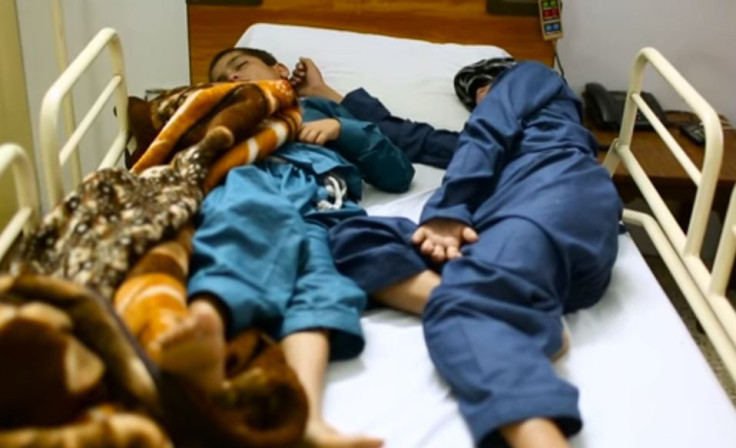Medical Mystery Of The ‘Solar Kids’: Pakistani Brothers Become Paralyzed When The Sun Sets

During the day, 13-year-old Shoaib Ahmed and his 9-year-old brother Abdul Rasheed are like any other ordinary kids: They’re able to walk, talk, eat, and be physically active. But when the sun goes down, almost as though they’re under the effects of an enchanted curse, they’re deprived of movement or the ability to speak. Dubbed the “solar kids,” the brothers are paralyzed after the sun’s rays disappear, and are unable to move, eat, or talk again until the sun rises.
Doctors remain perplexed by the condition, though they believe it may have something to do with genetics, as the boys’ mother and father are first cousins. “We took this case as a challenge,” Javed Akram, a professor of medicine at the Pakistan Institute of Medical Sciences, told the Associated Press. “Our doctors are doing medical tests to determine why these kids remain active in the day but cannot open their eyes, why they cannot talk or eat when [the] sun goes down.” According to Akram, Shoaib and Abdual lost two brothers to the same condition, though their sister is unaffected.
In order to remain under medical observation, the boys are living in a hospital in Islamabad, Pakistan. So far, doctors have ruled out the unsubstantial theory that the boys receive energy from the sun, as they were able to move around during the day in a dark, enclosed room. Researchers are also collecting soil and air samples from the family’s home village, and sending the brothers’ blood samples to overseas medical labs for examination.
According to Akram, speaking to reporters, there is a higher prevalence of genetic disorders in Pakistan compared to the U.S., possibly due to greater risk factors in developing countries. A 2012 study, for example, listed unplanned pregnancies, poor maternal nutrition, and higher rates of marriages between two related people as factors in the increased rate of birth defects in India. Consanguineous marriages, or unions between two relatives, appear to be one of the greatest risk factors for birth defects. According to a 2013 study, related married couples accounted for a third of babies born with abnormalities in Bradford, England.
While temporary paralysis and sleep paralysis — caused by nerve damage or a halting of muscle movement during REM sleep, respectively — are real conditions that can occur in ordinary people, neither of these things appear to be causing the brothers’ syndrome. Doctors hope that, with time, they’ll be able to learn what’s causing the disease, and prevent it from progressing with treatment.



























